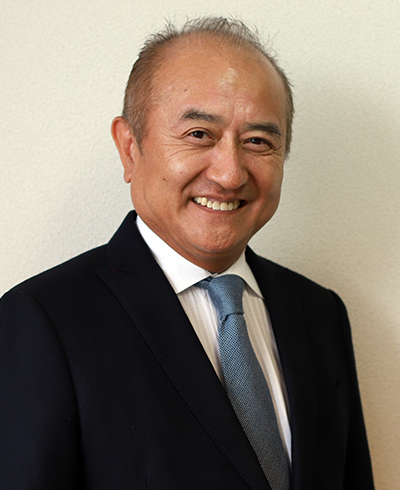Greetings from the President

- Yutaka Suzuki
- President of JSPEN2026
It is a great honor to serve as the president of the 41st Annual Meeting of the Japanese Society for Parenteral and Enteral Nutrition Therapy (JSPEN2026). Medicine is advancing rapidly, and we have entered an era where treatments once deemed impossible can now be performed safely and reliably.
Many factors contribute to this progress, including the elucidation of pathology at the atomic, molecular and genetic levels, the development of new drugs based on these discoveries and the establishment of micro-level treatments. Other key elements include team-based medical care, AI-driven remote healthcare, the tireless efforts of healthcare professionals, robotic medicine, public access to information, supportive care for patients, inventions in medical devices, and political and administrative support. The accumulation of these achievements has led to the medical advances we see today; progress is recognized as innovation.
On a personal note, I was urgently admitted to Jikei University Hospital on November 12, 2022. I experienced excruciating pain in my sternum and sacrum, unlike anything I had ever felt before, so I knew that it was a serious disease. The diagnosis was Philadelphia chromosome positive acute lymphoblastic leukemia, a disease I recalled from my student days as having a very high mortality rate.
Chemotherapy was initiated immediately, and my progress was smooth. However, in February 2023, my body struggled to metabolize large amounts of methotrexate, leading to a decline in renal function that left me in a critical condition. During this time, I suffered from severe diarrhea and my physical strength deteriorated significantly.
In a dream, I conceived the idea of fecal transplant therapy for severe CD, realizing that the only way to alleviate this severe diarrhea was to regenerate the villi in the mucosa of the large intestine . At the time, I could barely consume anything orally, but with the collaboration of my doctor, as well as the nutrition and pharmacy departments, I began a small diet along with synbiotics. Three days later, the diarrhea resolved, and my renal function began to improve as well.
Since my overall condition had improved dramatically, a bone marrow transplant, once deemed unfeasible, was then considered possible. However, after receiving advice from trusted friends, I changed my treatment plan to antibody therapy instead of undergoing a bone marrow transplant. After approximately six months of treatment, I achieved six consecutive complete remissions and was discharged from the hospital on October 25, 2023. Although scientific evidence is limited, oral intake and synbiotics have certainly contributed to symptom improvement. I firmly believe that synbiotics can be an effective treatment for mucosal disorders that frequently occur during leukemia treatment. I also realized that new antibody therapies offer an alternative to bone marrow transplants, which remain the standard treatment for leukemia. My own cancer treatment reminded me of the importance of nutrition therapy, and I was excited about the endless possibilities of combining it with existing treatments. Nutrition therapy is a traditional yet continually evolving treatment method that has undergone numerous innovations.
This meeting will discuss nutrition therapy from various perspectives. In particular, we are working hard to make innovation-focused sessions more creative, aiming toward the next generation of medicine. We look forward to warmly welcoming many of you to the meeting.


